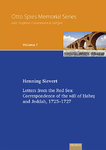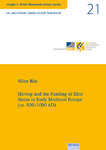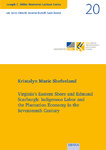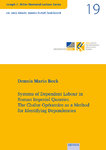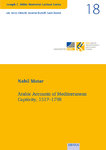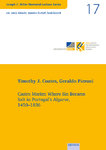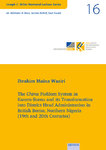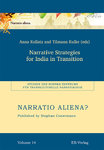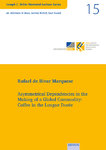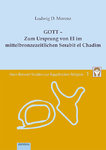- ISLAMWISSENSCHAFT
- ISLAMISCHE_STUDIEN
- JOSEPH C. MILLER MEMORIAL LECTURES SERIES
- ASIENWISSENSCHAFT
- ARCHÄOLOGIE ALS KULTURWISSENSCHAFT
- RELIGIONSWISSENSCHAFT
- RELIGIONSPÄDAGOGIK
- GESELLSCHAFT UND KIRCHE
- KIRCHE UND GEMEINDE
- GESUNDHEIT UND KRANKHEIT
- KINDERGARTENPÄDAGOGIK
- OPEN_ACCESS
- Neuerscheinungen
- In Vorbereitung
- News
- EBook
- Einzelkataloge
Categories JOSEPH C. MILLER MEMORIAL LECTURES SERIES Vol. 7: Moral Dilemmas in Slave-Owning Societies:
Vol. 7: Moral Dilemmas in Slave-Owning Societies:
Product no.: ISBN: 978-3-86893-379-6
In stock
can be shipped within 3 days
41 pages, paperback
14,8 x 21,0, 2021
Slavery is not a natural state. It arises when people or classes in a society assume the right to treat others as their property. And yet the status of slaves has rarely been defined by law, even when slavery was an accepted social fact. This publication examines the laws that did deal with slavery, from the earliest written rules in Mesopotamia, India, China, Rome, and the Islamic world, to medieval Europe and Tibet. It is evident that, rather than offering comprehensive definitions, the lawmakers were dealing with the complications that arose from the instability of the state, including issues of manumission, legal capacity, and the status of children. People could become slaves without the need for legal intervention, as a result of warfare or debt, but many slaves acquired freedoms, presenting complications that the lawmakers tried to address. They also, in many cases, hint at moral discomfort, suggesting that the act of lawmaking forced slave-owners to face up to the fact that they were treating other people as property.
The Author:
Fernanda Pirie is Professor of the Anthropology of Law at the University of Oxford, where she teaches at the Centre for Socio-Legal Studies. She works on Tibetan societies, both contemporary and historical, as well as comparative and historic approaches to law and legalism. Her monograph on The Anthropology of Law (OUP) appeared in 2013, along with a series of comparative volumes on law and legalism (Legalism, OUP, 4 vols), published together with colleagues in anthropology and history. A global history of law will be published in November 2021: The Rule of Laws: a 4,000-year quest to order the world (Profile Books and Basic Books).




